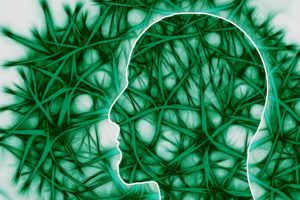
SHARE THIS ARTICLE:
Neurological Pain, Psychological Symptoms & Diagnostic Struggles Among TBD Patients
 In the journal, Healthcare, Sarah P. Maxwell, et al., lay out the limited information from public health reports on psychological and neurological symptoms of tick-borne diseases (TBD). “… Out of the fifteen neuropsychiatric symptoms reported in the medical literature for common TBDs, headaches and fatigue and/or malaise are the only two symptoms fully recognized by public health officials. Of TBDs, Lyme disease is the least recognized by public health officials for presenting with neuropsychiatric symptoms; only headaches and fatigue are recognized as overlapping symptoms of Lyme disease. Comparisons from a patient symptoms survey indicate that self-reports of TBDs and the associated symptoms align with medical and case reports. Anxiety, depression, panic attacks, hallucinations, delusions, and pain – ranging from headaches to neck stiffness and arthritis – are common among patients who report a TBD diagnosis. Given the multitude of non-specific patient symptoms and the number and range of neuropsychiatric presentations that do not align with public health guidance, this study indicates the need for a revised approach to TBD diagnosis and for improved communication from official public health sources regarding the wide range of associated symptoms.”
In the journal, Healthcare, Sarah P. Maxwell, et al., lay out the limited information from public health reports on psychological and neurological symptoms of tick-borne diseases (TBD). “… Out of the fifteen neuropsychiatric symptoms reported in the medical literature for common TBDs, headaches and fatigue and/or malaise are the only two symptoms fully recognized by public health officials. Of TBDs, Lyme disease is the least recognized by public health officials for presenting with neuropsychiatric symptoms; only headaches and fatigue are recognized as overlapping symptoms of Lyme disease. Comparisons from a patient symptoms survey indicate that self-reports of TBDs and the associated symptoms align with medical and case reports. Anxiety, depression, panic attacks, hallucinations, delusions, and pain – ranging from headaches to neck stiffness and arthritis – are common among patients who report a TBD diagnosis. Given the multitude of non-specific patient symptoms and the number and range of neuropsychiatric presentations that do not align with public health guidance, this study indicates the need for a revised approach to TBD diagnosis and for improved communication from official public health sources regarding the wide range of associated symptoms.”
The article provides tables of key symptoms with information on each, providing information reported by the Centers for Disease Control & Prevention (CDC), reported in scientific and medical literature, and reported in scientific literature but not recognized by the CDC. This enables readers to use the content to provide references for symptoms.
This is an open access article distributed under the Creative Commons Attribution License which permits unrestricted use, distribution, and reproduction in any medium provided the original work is properly cited
More Information:
Learn more about Lyme & TBD symptoms.
LDA NOTE: This article provides a wealth of information that can be used by patients and/or healthcare providers to document symptoms for diagnosis and/or treatment.





